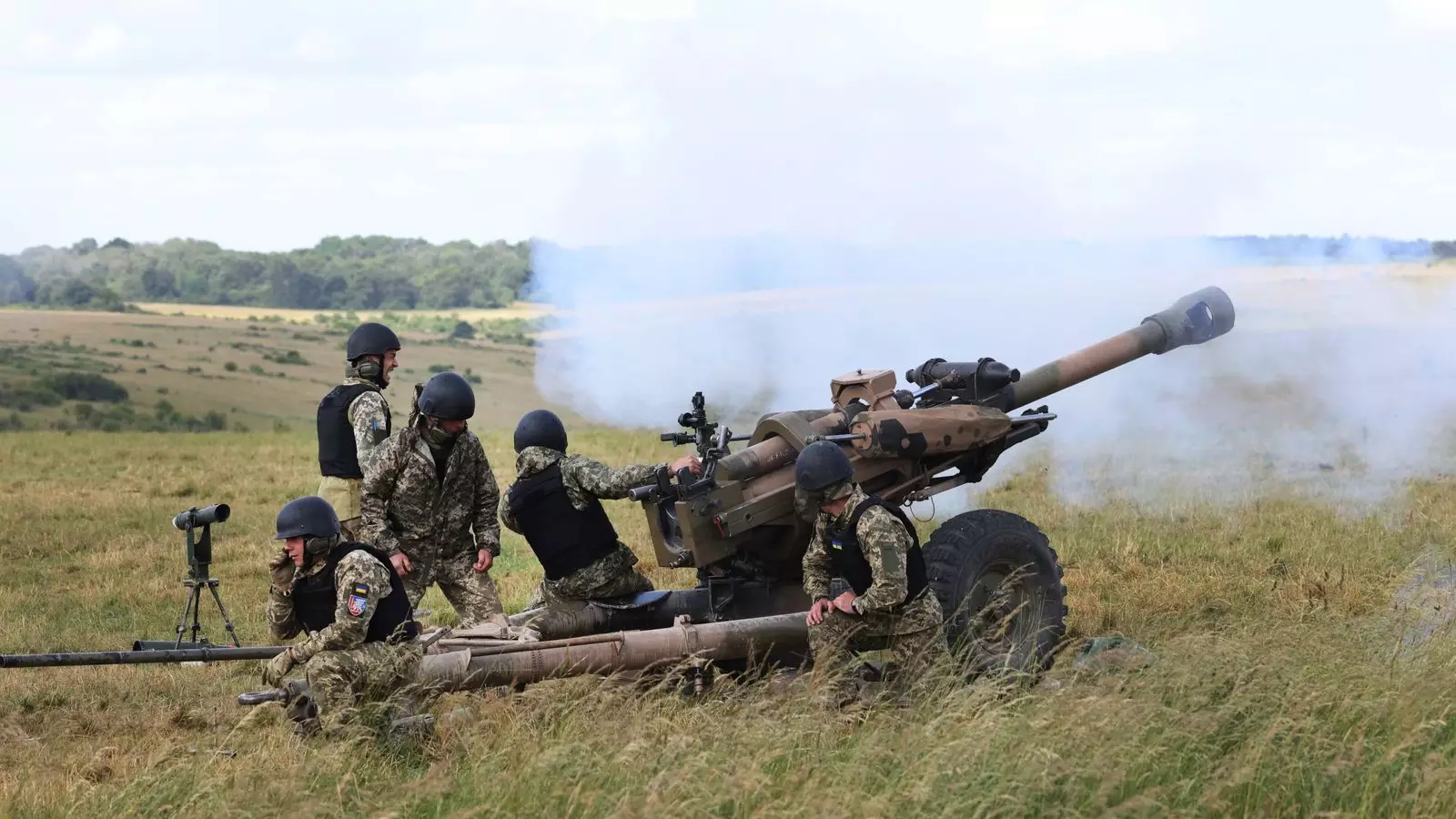The suggestion made by former armed forces minister James Heappey to consider sending troops to Ukraine for training and support, away from the frontline, is a contentious topic that raises questions about the UK’s involvement in international conflicts. While providing assistance to Ukrainian forces may seem like a noble cause, it also opens up a Pandora’s box of potential implications and consequences.
Another key point raised by Mr. Heappey is the proposal to reinvigorate a large “strategic reserve” force of veterans who could be called upon in times of national crisis. This idea harkens back to a Cold War era strategy of preparing the entire nation for the possibility of armed conflict. The concept of having a reserve force of veterans ready to serve again is both intriguing and worrisome, as it raises questions about the practicality and effectiveness of such a strategy in modern times.
Mr. Heappey’s push for an immediate increase in defence spending, aiming for 2.5% of national income now and reaching 3% by 2030, highlights the perceived inadequacies in the current state of the UK’s military capabilities. The emphasis on closing gaps in capability, such as defending UK airspace from missiles, underscores the need for a comprehensive and robust defence strategy in the face of growing threats globally.
Supporting Ukraine and European Security
The critical importance of supporting Ukraine in its conflict with Russia, as emphasized by Mr. Heappey, sheds light on the broader implications of the ongoing war in Eastern Europe. The need for the UK and its allies to provide Ukraine with additional weapons and support reflects a larger geopolitical strategy aimed at countering Russian aggression and preserving European security. However, the suggestion of deploying Western forces to Ukraine, as proposed by France’s President Macron, opens up a whole new set of challenges and risks.
Reviving National Defence Preparedness
The proposal to revive a system of preparing the entire nation for armed conflict, including the reinstitution of a strategic reserve force, speaks to the underlying concerns about national defence preparedness. The idea of ensuring that all sectors of society, including the military, industry, and the public, are ready for the possibility of war highlights a shift towards a more proactive and inclusive defence strategy. However, the practicality and feasibility of such a system in today’s world raise doubts and uncertainties.
Exploring Potential Military Deployments
The notion of exploring options for deploying British troops on a training mission within Ukraine raises ethical and logistical questions about the UK’s role in international conflicts. While the idea of providing support and assistance to Ukrainian forces may be well-intentioned, the potential risks and ramifications of such a deployment need to be carefully assessed and considered. Any decision to send troops to a conflict zone must be weighed against the broader implications for national security and international relations.
The proposals and recommendations put forth by Mr. Heappey regarding the UK’s strategic defence plan and potential involvement in Ukraine’s conflict with Russia raise complex and multifaceted issues that require careful consideration and analysis. The need for increased defence spending, the revival of a strategic reserve force, and the exploration of military deployments all underscore the evolving nature of modern warfare and the challenges faced by nations in maintaining their security and sovereignty in an increasingly uncertain world.



Leave a Reply